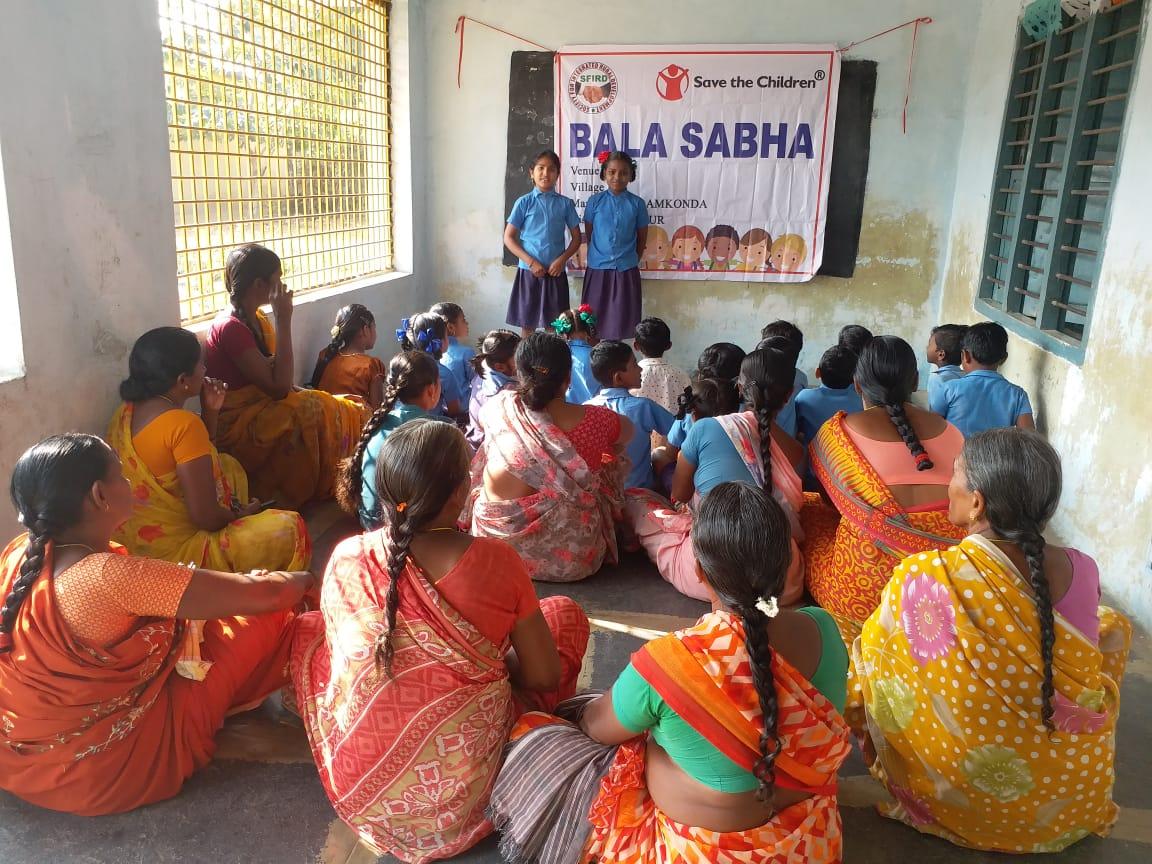Paulig Foods division, including the Santa Maria brand, has been collaborating with Save the Children since 2004 to support children’s rights. In 2017 a 3-year project with the goal of getting more children to study was initiated. Just a year later, some great steps forward have been taken.

- India is the world’s largest exporter of spices and a large proportion of spices is cultivated at small family farms. This makes it more challenging to control the entire value chain. As a part of our long-term sustainability work we wanted to know how the situation regarding child rights in the spice supply chain in India in general looked, tells Sandra Flodström, Group Senior Sustainability Specialist.
Therefore in 2015 the Paulig Foods division (then called World Foods & Flavoring) initiated a study on children’s rights in the supply chain of major spices in India. The study was performed by Save the Children India and included 8 areas in India and 6 different spices. The key findings of the study were that many children were seasonally involved in spice cultivation and due to helping their families the children risk missing out on education and leisure time.
Promoting the value of education
Based on the findings, Santa Maria formed a project in co-operation with Save the Children with the ambition to make a positive difference in the spice supply chain in India.
- The objective with the cooperation is to enter all children between the ages 6 to 14 year to school, but also to get them to stay and complete elementary school in a safe and conductive learning environment. The area covered by the project consists of 30 spice-growing villages in Guntur, Andhra Pradesh, tells Flodström.
An important part of achieving the goals set is raising the quality of the school, which means e.g. focusing on the teachers' skills, school materials and the organization of the schools. Equally important is to increase the residents' understanding of the value of schooling and educate them in children's rights.
Great success after one year
After just one year of the project, a lot has been achieved. At the start of the project 1150 children in the age between 6 and 14 year were identified as not going to school. After one year 53% of them are now going to school. In addition to this, 3000 children that already are enrolled in school get access to a safe and conductive knowledge environment. 45 out of 60 teachers have been trained in child-friendly education and are practicing these methods in their work. 30 Academic Learning Centers are in place and running. These centers enhance the learning levels of children with e.g. different pictoral charts and books to promote a habit of reading among the children.
Although the results of the project have been excellent, there has also been some challenges on the way.
- Lack of transportation makes it difficult to reach the villages. It has always not been easy to find teachers that are willing to stay in remote villages for long periods. If the teachers decide to leave, we need to find new teachers and train them, Flodström describes.
During the spice cultivating season, poverty and migration may also lead to seasonal absence of children from school.
A pilot for sustainable spice farming
Another part in the project is to develop the spice supply chain involvement. As a first step in this involvement there will be a pilot run in 2019. One of Santa Maria’s suppliers will train chilli farmers in these 30 villages, with the aim to enhance the yield for the small farmers in a sustainable way. It will be a farmer to farmer interaction model as it is important the farmers are comfortable with this intervention.
- 30 villages are not enough. Our long-term ambition is to make our project a role model for how to make a positive difference when it comes to education and child rights. We also want to encourage other companies and organizations to act, concludes Flodström.
Pictures: Save the Children